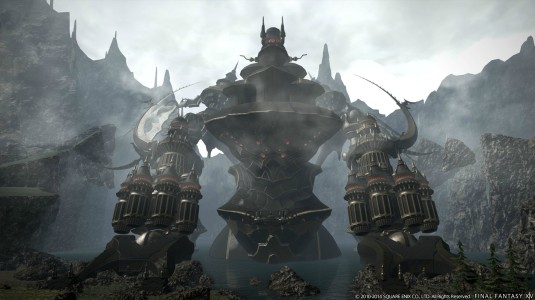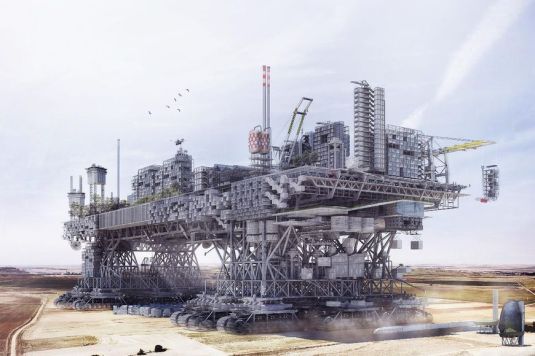The other day, I was about to take a long drive and wanted an audiobook to entertain me on the way. I opened up Libby, the hugely convenient Library app, and searched the sci-fi category. The most intriguing title of those available was one called “Scrivener’s Moon” by Philip Reeve.
Little did I know that this YA author is actually quite popular. Friends told me that one of his series is being made into a film directed by Peter Jackson. Pop culture and I don’t hang out much. But that aside, the story made me think of cities and nature and the naturalness or not of engineering.
One of the main themes in this series is that of the mobile city. It’s a tiered city that is built on enormous machines that power its engines and drive its wheels forward across the Earth. All of London, in this book, is being torn down and rebuilt as the first “Traction City.”

This isn’t the first time I’ve run into the idea of a mobile, mechanical city. My first encounter with it was in Final Fantasy XIV‘s Heavensward expansion. A group of goblins, always the tinkering sort of folk, decided to reactivate a long-dormant engine named Alexander. Originally, Alexander was intended to be a mobile home for the scientists and scholars of Sharlayan. They would be able to study in peace, traveling around the world as they wished, free from the disruption of the outside world.
In Final Fantasy XIV, this utopian vision is twisted into a dystopian one where the tinkering goblins imagine a world they’ve molded to be perfect. In both visions, however, Alexander the construct survives by absorbing “aether” from the Earth, a kind of energy that suffuses the planet and sustains life. Whether the vision of the inhabitants is one of good or ill, the reality for all those outside is always disastrous.

Similarly, in Scrivener’s Moon, the notion of a mobile, mechanical city is brilliant and utopian to the engineers of London, but it is a catacylsmic horror to the Nomadic Empires of the North. They see a mobile city as a threat. It is as if a city should always be stationary; to also give it to mobility is to upset the balance of power between human engineering and the natural world.
It’s interesting to me that in both of these unrelated stories, the motif of a mobile, mechanical city exists in sharp contrast to the health and existence of the world around it. Both stories operate on an assumption that urbanization is the opposite of the natural world, and that a mobile urbia (yes, it’s a word) is a dystopian horror, sure to bring about ruin to the lands and peoples around it.
I wonder if these stories speak to a fear of human power. There seems to be a sense that human ingenuity is dangerous. It’s good, too, but only when constrained in some way. The engineers of London (high-tech) and the Nomadic Empires (low-tech) were balanced by one’s stationary location and the others’ freedom of movement.
Why is a mobile,mechanical city so frightening? Are cities unnatural? Is engineering a near-divine feat? These stories seem to tap into a belief that humans should have a bound on their power, not only over each other, but over the Earth as well. Not because of some moralistic notion or any political leaning, but because deep down, they just know that a mobile city is wrong, wrong enough to ruin everything.
If you’ve read stories with this motif, I’d love to hear about them. After a few quick searches, I didn’t turn anything up myself. It’s close to the Base on Wheels trope, but not quite the same. If you’d like to read more about mobile cities in real life, I did find this article about a Spanish architect’s idea for them.

Recent Comments